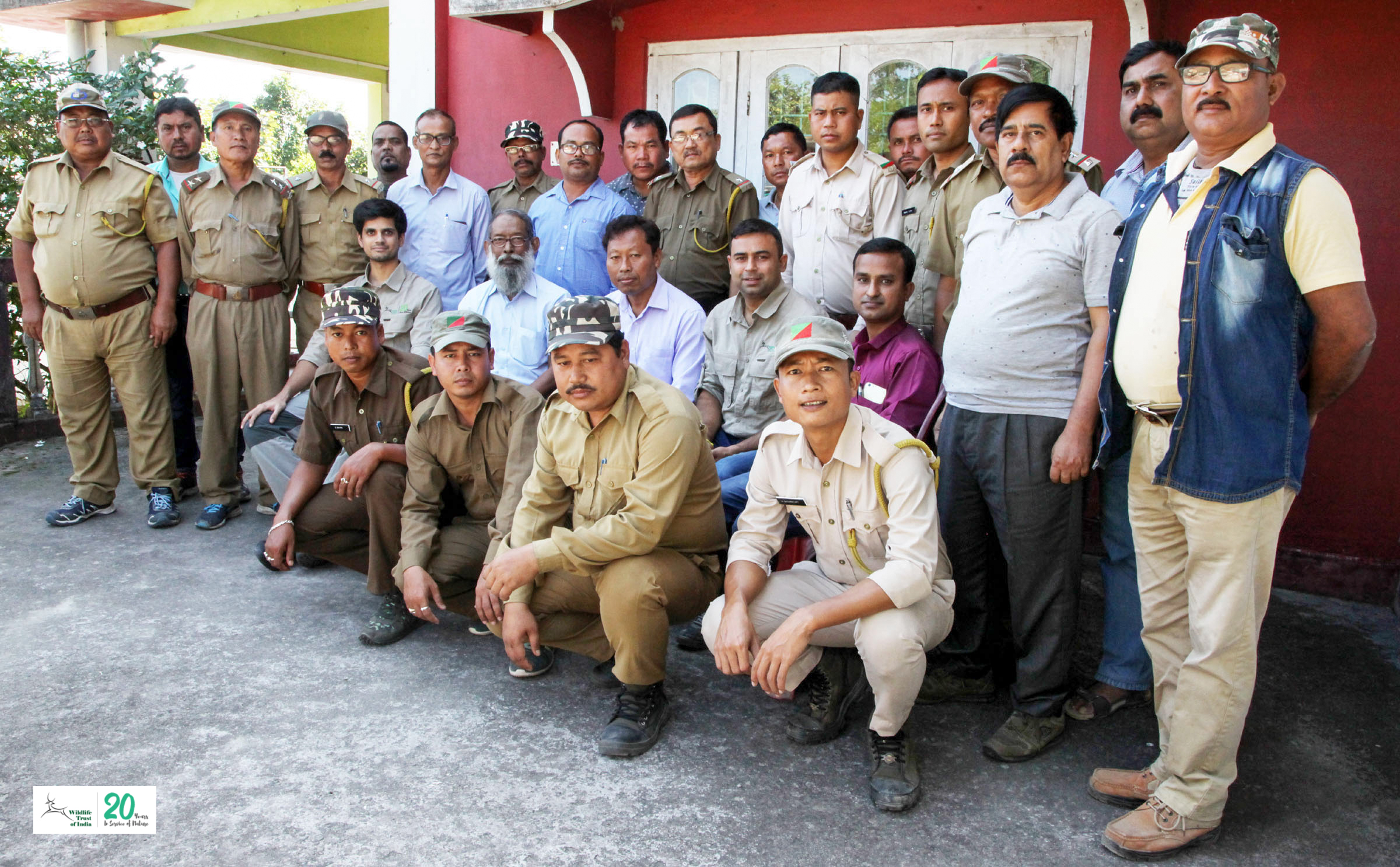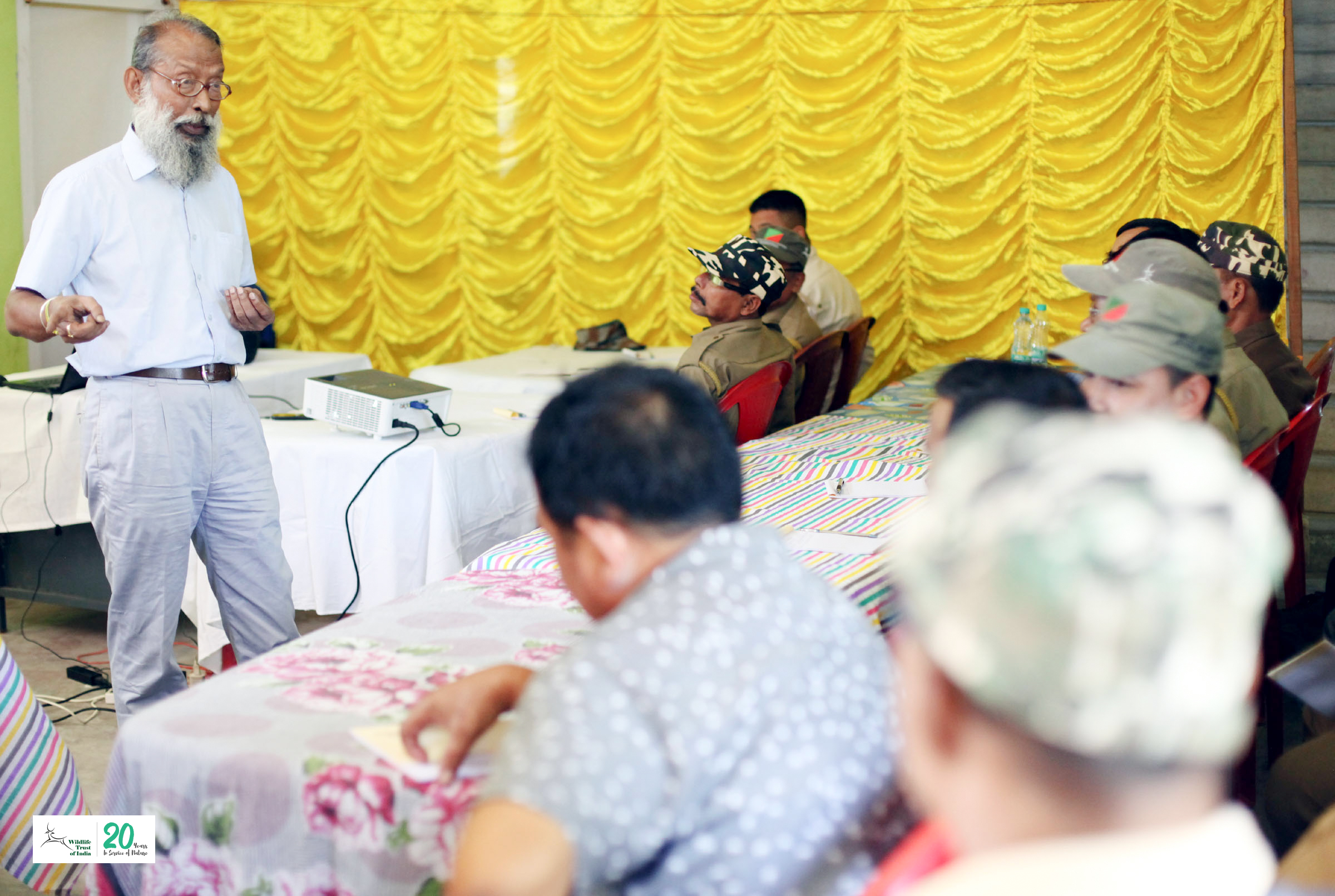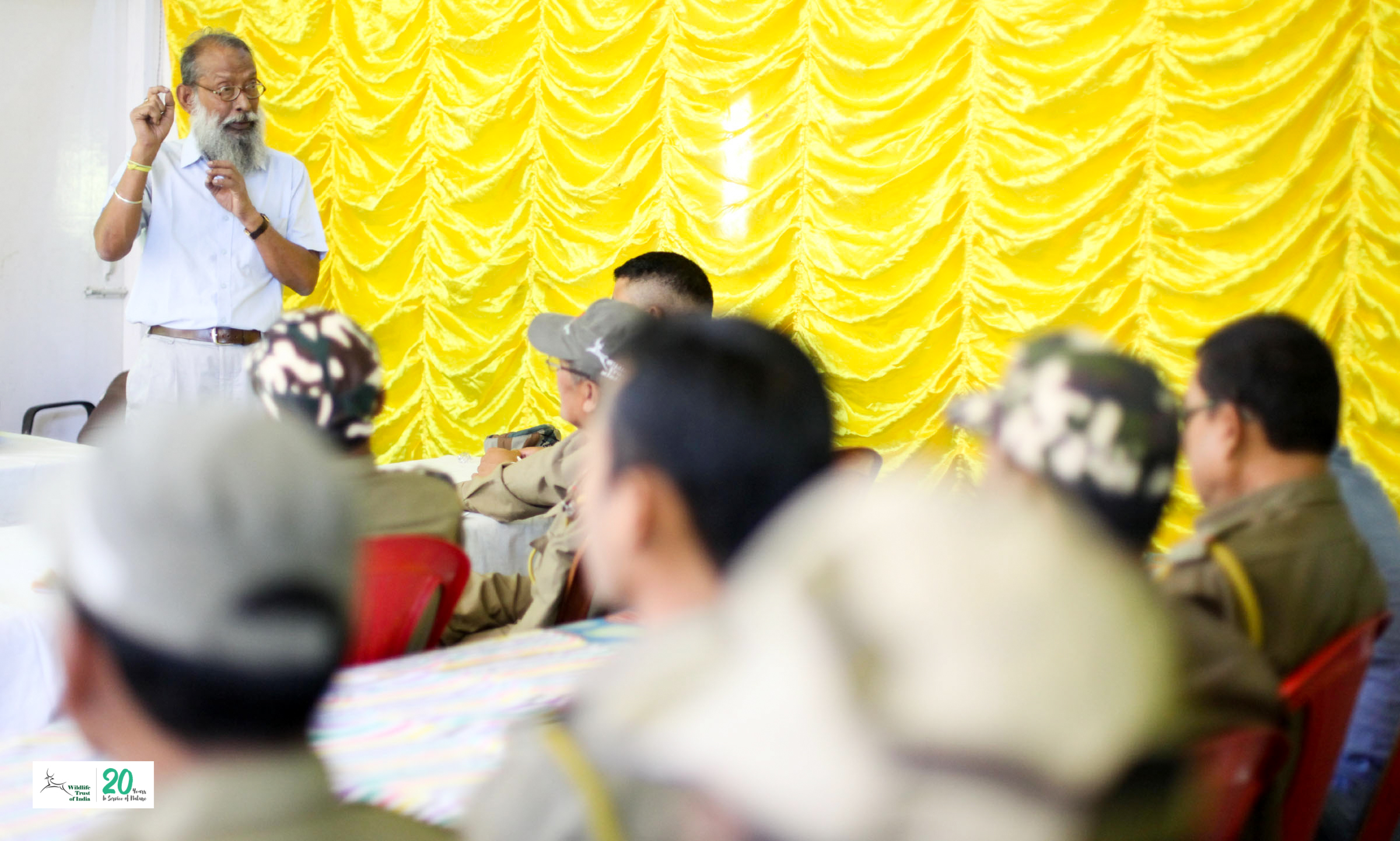Chirang, Kajalgaon, BTC, November 21, 2018: A total of 24 frontline forest staff from five forest ranges under Chirang Forest Division participated in the Wildlife Crime Prevention training on 30th October 2018 – 1st November 2018 at Chirang DFO Office campus at Kajalgaon. The Chirang Forest Division is currently overseeing ‘First Addition to Manas National Park’ under Manas Tiger Reserve. The trainees belong to the rank of Range Forest Officer, Forester 01 and Forest Guards.

Training and equipping frontline forest staff is one of the key components of achieving enhanced protection and enforcement in the landscape for biodiversity conservation. IFAW-WTI in partnership with Forest Department, Assam and Bodoland Territorial Council has been conducting such wildlife crime prevention training since 2011-12. A total of 520 selected frontline staff has been trained and equipped till date.
The Greater Manas Recovery Project of Wildlife Trust of India and International Fund for Animal Welfare envisage restoring and enhancing the ecological attributes of ‘Greater Manas Landscape.’ Training and equipping frontline forest staff is a key component for enhanced protection and enforcement in the landscape for biodiversity conservation.
The training module consists of a fresh training (four days) followed by two refresher courses (two and half days) and a special training workshop with key individuals among the staff for seven to ten days, focusing extensively on offence report writing.

The curriculum included legal and enforcement aspects of the Wildlife (Protection) Act, 1972, as well as wildlife crime prevention components such as the basics of anti-poaching patrolling techniques, intelligence gathering, informer network and handling, search and seizure, interrogation, crime scene investigation and the preparation of Preliminary Offence Reports. Trainees were also briefed on relevant provisions of the Indian Evidence Act, Indian Penal Code and the Code of Criminal Proceedings, and the powers conferred on them therein for the prosecution of wildlife crimes.
The training emphasizes the screening of court cases under trial, common mistakes and discussions about legal loopholes. The trainers further evaluate the quality of documentation in all cases registered since past training.

It includes a group exercise of writing offence reports on four “fictional crime scenes” – to be submitted before the trial court. The offence reports will then be screened by advocates for legal errors and how to rectify them. The evaluation of the first training was done based on cases registered by the trainees in the court of law. It was encouraging to see more than 35 cases were registered by both the forest ranges; with at least 80% of them registered under the Wildlife (Protection) Act, 1972.